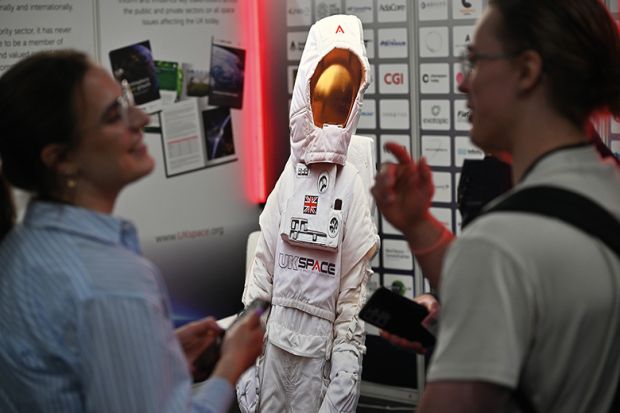The UK’s first bank account dedicated to accelerating science and technology hopes to act as a bridge between the country’s powerful financial sector and “underfunded” research projects.
Science Card, which is set to launch next month, will allow customers to contribute towards a range of scientific research projects through their daily spending.
While studying for his PhD in biomedical engineering at UCL, Daniel Baeriswyl, Science Card’s founder and chief executive, recognised the importance of research and innovation, but also how much capital is needed to make progress.
“I found it interesting that the investment side is so heavy on financial services, but by comparison life-changing innovation is very underfunded,” Dr Baeriswyl told Times Higher Education.
“I thought there was an injustice in our world, and I thought: ‘How can I contribute for our society to make this injustice go away?’ I wanted to bring science, innovation and R&D closer to the source of money.”
Alongside a Mastercard debit card and a full set of account and payment features, the Science Card app will host a range of scientific research projects by UK universities, which customers can explore and contribute to.
Users can contribute money in small increments by rounding up their spending to the nearest pound, or by directly transferring money to the lab of their choosing.
Dr Baeriswyl said Science Card will enable customers to have real impact compared with other financial services, and to “create a better future” by choosing exactly where their money goes.
And for scientists, he said the money is a promising source of funding because it has no deadline, is continuous and gives their research visibility to a customer base.
“We are creating a bridge between innovation, R&D and the financial sector so that money can flow more efficiently, and this way we can really accelerate scientific discoveries by using the enormous power we created in our capitalist system,” added Dr Baeriswyl.
Despite increasing spending on R&D to 2.4 per cent of gross domestic product, the UK still lags behind other nations within the Organisation for Economic Co-operation and Development. Dr Baeriswyl said the government can help bridge that gap if it wants to create a science superpower but the private economy also has a responsibility to contribute.
The debit card is the first step in the company’s stated longer-term ambition to become a “socially conscious bank” to support science, healthcare and technology.




